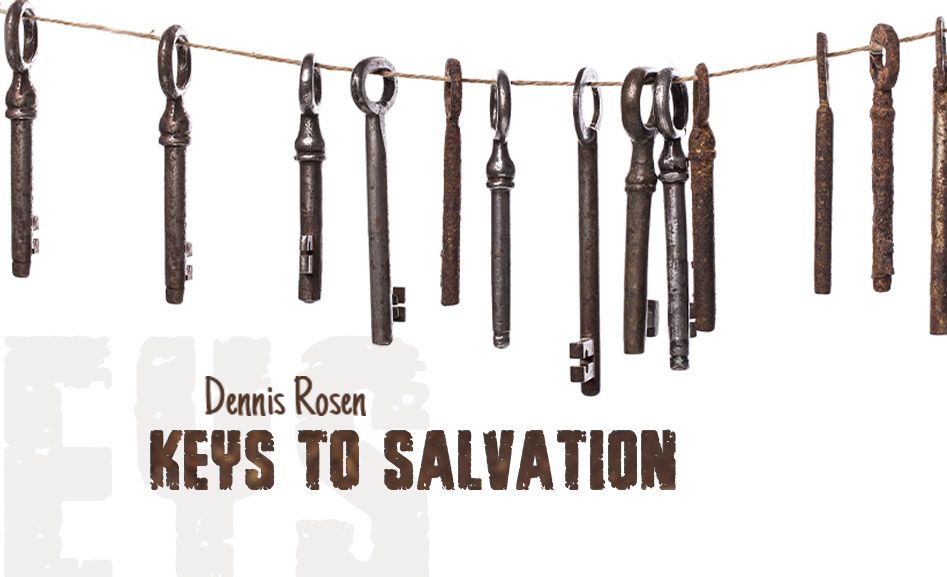
Discovery
Many famous, rich, and successful people succumbed to despair, emptiness, substance abuse, and even suicide, for they failed to seek Hashem.

The constant struggle of life in this material world is exactly what drives a person to seek Hashem.
As soon as people realize their futility against all the forces in the world that work against them, they become modest. Modesty is an important prerequisite for emuna, since a modest person knows that he or she is incapable of navigating the troubled waters of this world without Hashem’s help. Consequently, they turn to Hashem, and develop a strong desire to feel Hashem’s comforting influence in their lives.
Modesty, emuna, and desire are basically one entity. The recognition of one’s limitations leads to modesty, modesty leads to emuna, and emuna invokes a strong desire and longing for Hashem. Once a person’s emuna is developed to the point that he or she actively seeks Hashem, life becomes sweet and gratifying, despite their tribulations.
Why wait for times of trouble? The more we truly seek Hashem, the more we improve the quality of our lives. Even if we don’t suffer from any earth-shaking difficulties, we should nevertheless turn to Hashem on a regular basis. Our Talmudic Sages taught that a person should constantly thank Hashem for the past and cry out for the future (Tractate Brachot, 54a). By regularly speaking to Hashem – thanking for the past and requesting for the future, even in good times when things are going our way – we begin to feel Hashem’s Divine Providence and His magnificent compassion in every breath we take.
Now, imagine that you’re 100% healthy, you have all the money you want, you’re successful in everything you do, people look up to you, and you do and buy whatever you want whenever you want. Sounds like a blessing? It’s not – on the contrary, it’s a curse. Many famous, rich, and successful people succumbed to despair, emptiness, substance abuse, and even suicide, for they failed to seek Hashem. The loneliest existence on earth is a life without Hashem, God forbid.
So, when Hashem sends us troubles as a reminder to seek Him, He’s doing us a tremendous service. Yet, if we’re wise enough to seek Hashem when our lives are progressing on a positive mode, then Hashem doesn’t have to resort to trials and tribulations in order to awaken us from spiritual slumber. Riches and material amenities can never quench a soul’s thirst – proximity to Hashem can.
Consequently, as soon a person contemplates the purpose of life and realizes that the chase after material gratification leads nowhere, then he or she is ready to channel their desires and energies into satisfying the needs of the soul and seeking the proximity of Hashem. With spiritual eyes that gaze toward the ultimate objective of life, apparent troubles in this world suddenly become valuable opportunities for spiritual growth that enable us to incorporate Hashem in our lives.
When we discover that our life’s purpose is to get to know Hashem, life becomes sweet, gratifying, and meaningful. Attributing everything to Hashem smooths out life’s bumpiness – we thank Hashem for our successes and don’t despair about our failures. We take advantage of life’s trying times to strengthen our relationship with Hashem. Suddenly, we discover that every stimulus in our environment is a tiny message from Hashem calling us to come closer. Nothing is sweeter than receiving a personal message from our glorious and compassionate Father in Heaven.
Once we develop the awareness that our environment is Hashem’s way of talking to us, we sharpen our perception to the events in our lives. A person that’s receptive to Hashem’s messages is constantly reacting to whatever Hashem is relaying. For example, they construe one event as a message to correct a certain flaw, or another occurrence as a wake-up call to do teshuva. Their lives become one harmonious story of constant spiritual gain.
Difficult situations require reinforcement of emuna. When we remember that trials and tribulations are designed to bring us closer to Hashem, and not to cast us away, we weather them much more easily and successfully.
Hashem created the world in order to reveal his limitless compassion. By getting closer to Hashem, we gain a better understanding and insight into His vast goodness. So, when we remember that our struggles and suffering are designed in essence to bring us closer to Hashem, then we avoid falling into the traps of anger, anxiety, and despair. On the contrary, we run even faster to Hashem.
Slowly but Surely
People ask a basic question: If Hashem wants me to get closer to Him, why doesn’t He simply reveal Himself to me?
Imagine that the electric company wanted to save money, so they closed down their transformers and relay stations, and sent a direct cable from their main generator to your house. When you’d turn on the switch to your 100-watt bulb in the living room, 50,000 watts of power would come through the cable. The bulb would burst to smithereens in a split second. Even worse, the cables in your walls would explode, and the whole house could catch fire. For that reason, the electricity can’t reach your home without a series of transformers, circuit breakers, and relays that reduce the core power of the generated electricity to a measure that you can safely use.
By the same token, Hashem’s Divine Light is infinite and unlimited. For our own benefit, Hashem doesn’t give us an illumination that is too strong for our souls to handle, otherwise we’d “burn out” – die, become insane, or lose our faith altogether, Heaven forbid. Consequently, Hashem – like a good coach – gives us opportunities to strengthen our spiritual selves so that we’ll be sturdy enough vessels to receive an increased portion of Divine Light.
Every time a person undergoes a test of faith, overcomes an obstacle in his or her performance of a mitzvah, or fights against temptation and bodily urges, he or she strengthens their soul and becomes a proper vessel for increased Divine Light. The greater the illumination, the closer one gets to Hashem and vice versa. As we come closer to Hashem, life becomes ever so sweeter.
The Talmud tells the story (see Tractate Chagiga 14b) of four sages that entered the “citrus grove,” allegoric of the upper spiritual worlds. One died, one went insane, and one lost his faith altogether. Only Rabbi Akiva entered safely and returned safely. The first three lacked the spiritual vessels that were required for such a high-level exposure of Divine Light. Rabbi Akiva, on the other hand, had reinforced his spiritual self to the extent that the illumination not only did not damage him; it was gratifying to him, since he was a proper vessel for such a level of Divine Light.
Rabbi Akiva was the son of poor converts. He exerted tremendous effort in refining himself during his transformation from common peasant to monumental Torah scholar with tens of thousands of disciples. Rabbi Akiva couldn’t rely on a blue-blooded pedigree or a father that was a great rabbi. Spiritually, he was a self-made man. At forty, he began the long road of Torah and teshuva, hampered by indescribable difficulties, poverty, and limited natural learning capabilities. The Gemora teaches us that he spilled rivers of tears in begging Hashem to enable him to learn and comprehend the Torah. He was so poor that he slept in a barn. But, the disadvantages of his life fueled his burning desire to get close to Hashem. Through years of effort, deprivation, suffering at the hands of the Romans, and being cast away by his father-in-law, Rabbi Akiva continued slowly but surely in his tenacious and relentless efforts to learn Torah and to refine his soul. As such, he became an exquisite vessel of spirituality that far exceeded his better-advantaged contemporaries.
Rabbi Akiva’s three colleagues had easier lives than he did; each of them came from families of high social standing, and each was a great scholar in his own right. But, they lacked Rabbi Akiva’s depth of spiritual strength and were therefore damaged by an excess of Divine Light.
Knowing that our difficulties in life are the vehicles that actually strengthen our souls and bring us closer to Hashem, we become girded with the strength to handle any situation. What could be a bigger encouragement than knowing that Hashem wants to bring us closer to Him? So, when we look at our lives through eyes of emuna, we instantly become both stronger and happier.
Don’t be jealous of someone that has an easy life – that’s not a prize. Any champion athlete knows that without pain, there’s no gain. People that haven’t been tested are very limited in their capability to understand faith or to get close to Hashem.
Now that we realize the benefits of life’s difficulties, we can clearly understand why Hashem sent our souls to this lowly material world.
To be continued…














Tell us what you think!
Thank you for your comment!
It will be published after approval by the Editor.